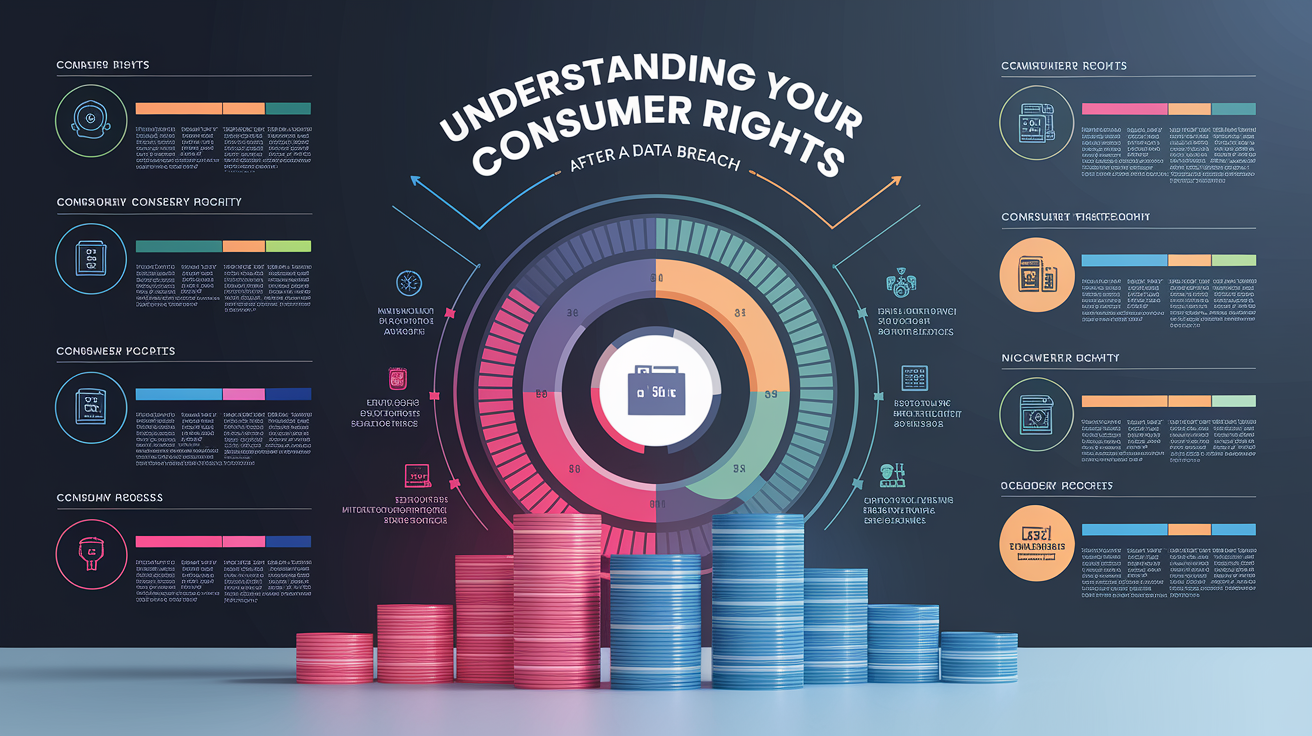Understanding Your Consumer Rights After a Data Breach
A data breach can feel like finding your front door wide open after a storm—everything precious suddenly vulnerable. In legal terms, a breach happens when your personal information is accessed or disclosed without your permission. This can involve Social Security numbers, financial records, medical files, or other sensitive data. The impact? Identity theft, drained bank accounts, and even years spent repairing the damage to your credit and peace of mind.

Fortunately, you are not without protection. Federal and state laws create guardrails for your privacy rights. Under laws like the California Consumer Privacy Act (CCPA) and, in some cases, the GDPR, businesses must safeguard your data and notify you promptly if it is compromised. These breach notification requirements ensure that you can take defensive steps before thieves misuse your information. You may also have the right to seek compensation through litigation for negligence, breach of contract, or other violations of consumer protection and privacy laws (learn more here).
Think of these protections as the seatbelt in your car—you hope never to need it, but when an accident happens, it can save you from much greater harm.
Immediate Protective Actions to Take
When you learn your data has been exposed, time becomes your most valuable resource. Waiting can turn a manageable problem into an uphill battle.

Here are urgent measures you should consider as soon as you receive a breach notification:
- Confirm the breach. Verify the notification came from the legitimate organization and not a phishing scam.
- Change your passwords. Focus on financial accounts, email accounts, and any services linked to sensitive information.
- Activate credit monitoring. Many breached companies offer free monitoring—this is like installing security cameras after a break-in.
- Place a fraud alert or freeze your credit. This makes it harder for identity thieves to open new accounts in your name.
- Monitor your accounts daily. Look for suspicious transactions or changes in account details.
Some of these steps are not just caution—they can become evidence of your due diligence later if you pursue a legal remedy.
Exploring Legal Remedies for Affected Consumers
After the initial storm has passed, you may be asking: What can I do to hold the responsible party accountable? Much like navigating a maze, understanding your legal remedies requires both a map and a guide.

Remedies for data breach victims can include:
- Monetary damages. Compensation for financial loss, emotional distress, or costs related to identity theft.
- Injunctions. Court orders that compel companies to improve cybersecurity practices to prevent future breaches.
- Restitution programs. Such as credit monitoring or reimbursement for out-of-pocket losses.
- Recovery of legal expenses. This may include attorneys’ fees if you win a claim.
State attorneys general also play an active role in pursuing companies for violations, sometimes resulting in multi-state settlements, as described by the National Association of Attorneys General. You may be eligible to join a class action lawsuit if many consumers are affected by the same incident—a process that pools claims for greater leverage and efficiency.
How to File Complaints and Pursue Compensation
Filing a complaint or lawsuit after a data breach isn’t as simple as writing a strongly worded letter. It’s more like constructing a bridge—you need each piece in place for it to hold your weight.
- Gather documentation. Save breach notices, bank statements, and any correspondence related to suspicious activities.
- Report to the appropriate agency. File a complaint with the state attorney general’s office or the Federal Trade Commission.
- Consult an attorney. Look for lawyers experienced in privacy law and cybersecurity cases. They can evaluate whether you have a viable negligence, breach of contract, or statutory claim.
- Consider joining a class action. If available, this can increase your negotiating power and reduce costs.
- Track deadlines. Lawsuits have statutes of limitations, so act promptly to avoid losing your rights.
Compensation varies but can include direct reimbursement, statutory damages, and sometimes nonmonetary benefits like mandatory improvements in a company’s data security systems (details here).
Long-Term Benefits of Asserting Your Rights
Standing up for your rights after a data breach isn’t just about fixing today’s harm—it’s about building a safer environment for tomorrow. By taking legal or regulatory action, you send a signal to corporations that weak cybersecurity won’t be ignored.
Long-term benefits include:
- Encouraging stronger corporate data protection measures and regulatory compliance.
- Enhancing your own awareness and habits, reducing vulnerability to future data incidents.
- Setting precedent that benefits other consumers facing similar privacy violations.
- Potentially securing improved monitoring tools or identity theft protection packages.
Like planting a tree, the impact of asserting your rights grows over time—not just for you, but for the entire digital community.















